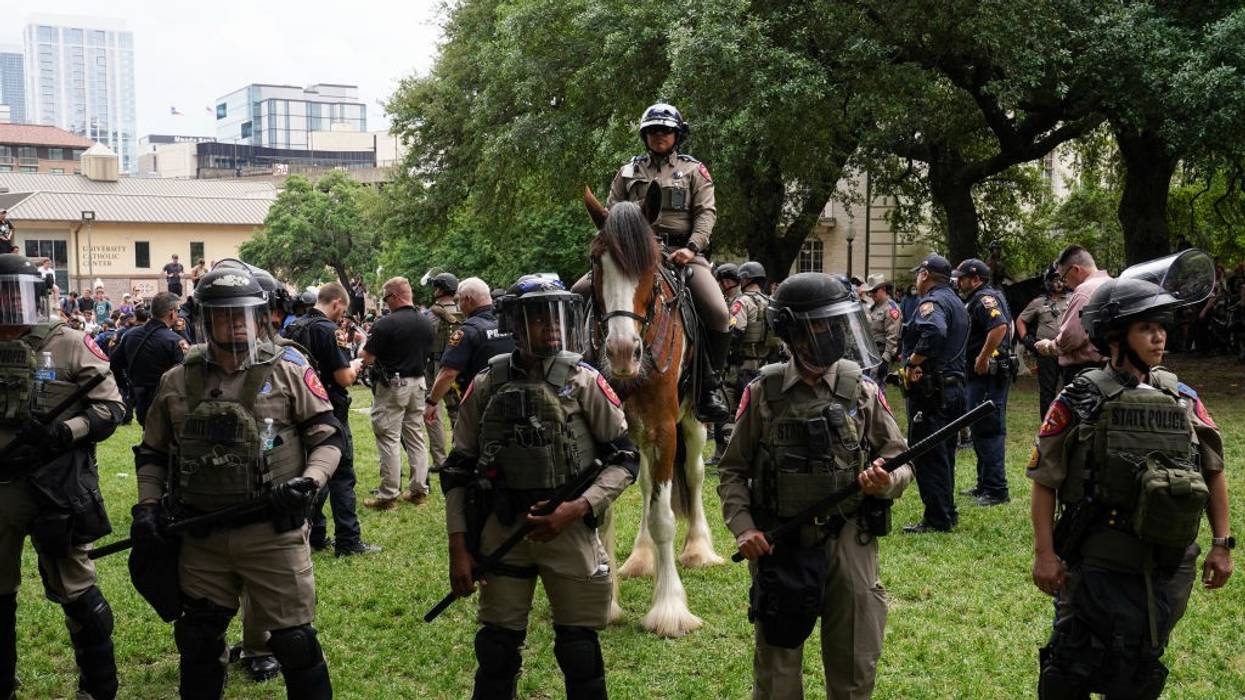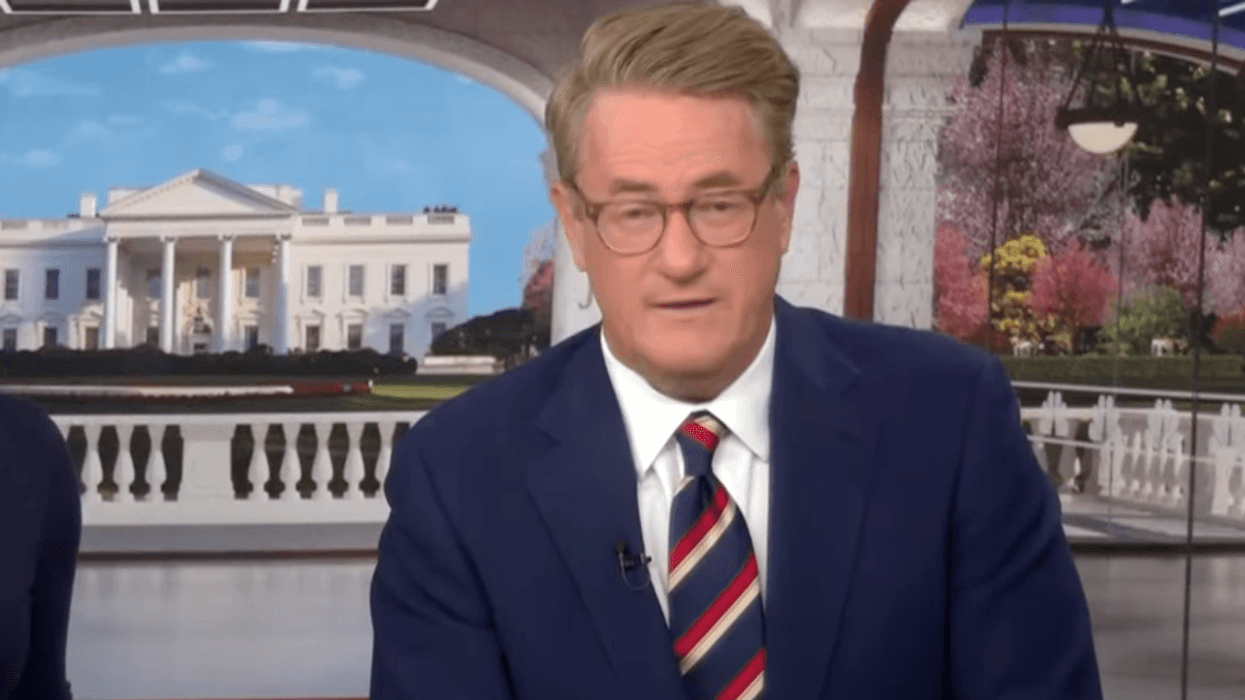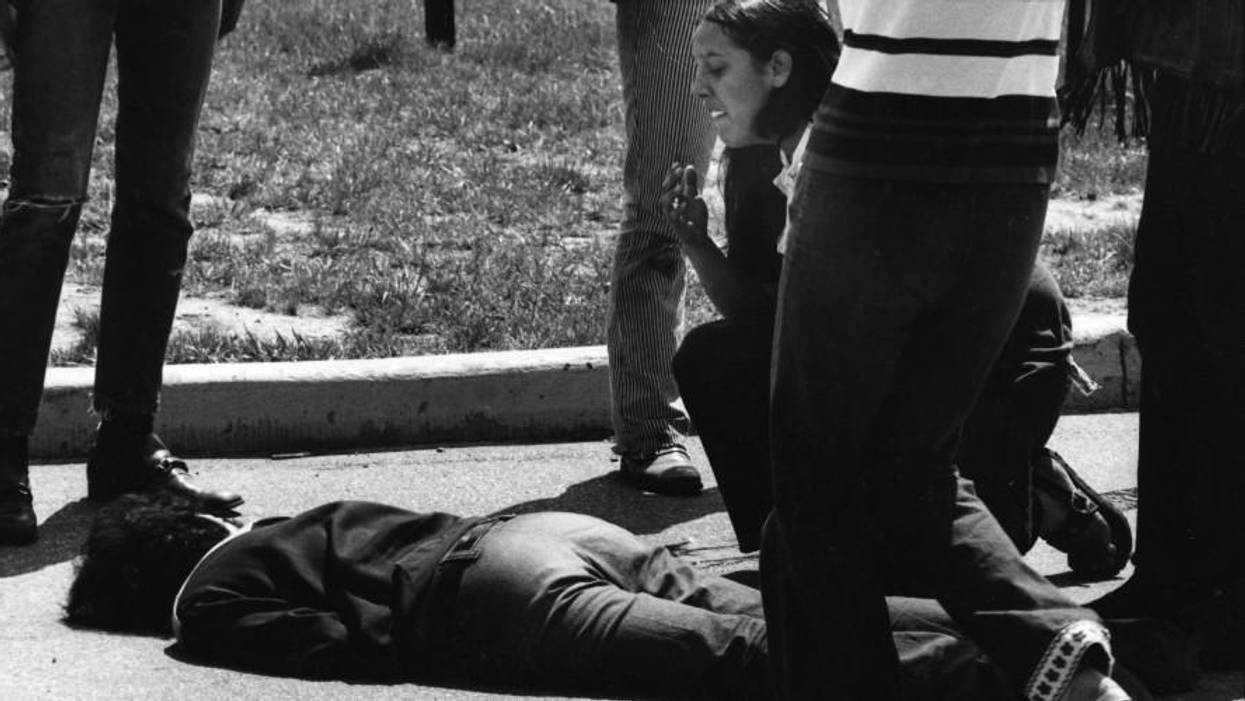At KSU, we were peacefully protesting the US invasion of Cambodia, a major escalation of the war in Southeast Asia, when we were met by a barrage of bullets from the Ohio National Guard.
Ten days later came more shootings at Jackson State in Mississippi, which left another two dead and an unknown number of wounded. Jackson was a predominately Black school and received less attention than Kent.
But the campus shootings sandwiched an even more horrific yet largely hidden historical event.
Three days prior to the shootings at Jackson, in Augusta, Georgia, the burned and mutilated body of an incarcerated 16-year-old mentally-challenged Black youth, Charles Oatman, was dumped by his jailers at a local hospital.
After decades of racist abuse, the torture and murder of Oatman set off an angry rebellion.
In response, white police officers went on a shooting rampage that left six Black men dead - all shot in the back. Another 60 were wounded - mostly from indiscriminate shotgun fire.
Such violence directed at Black working people received sparse attention.
- - - -
The invasion of Cambodia and domestic shootings sparked massive protests and a national student strike. Over 400 campuses were shut down and occupied. Millions of people joined street demonstrations demanding an end to the war.
It became increasingly clear to the majority of active-duty GIs that Washington had sent them to die in an unwinnable war. Our movement reached deep into the army, extending solidarity with antiwar soldiers. The global antiwar movement became so massive that the US was forced to withdraw from Southeast Asia.
It was a historic victory for peace and justice.
- - - -
For over 50 years, the federal, state and local governments, along with the KSU administration, has attempted to rewrite the history of the antiwar movement and possible government involvement in the massacre.
On May 4, 1970, an armed FBI informant, Terry Norman, was in the crowd - photos document the police taking his gun after the shootings. And, in the intervening years there have been numerous revelations about FBI/CIA covert programs to disrupt the antiwar movement. Yet neither Norman nor his FBI handlers has ever had to face public scrutiny.
For 2020, in an astonishing insult to May 4 victims, KSU President Todd Diacon tapped a former top Central Intelligence Agency (CIA ) official, Stephanie Danes Smith, to head the 50-year commemoration Advisory Committee.
Smith directed the largest section of the CIA, working directly with then-National Security Advisor Condoleezza Rice, at a time when Rice, Vice President Dick Cheney and Attorney General John Ashcroft were using CIA facilities to conduct the systemic torture of civilians at Abu Ghraib, Guantanamo and other black-op sites around the world. Their policies included waterboarding, sleep deprivation, sexual assault and numerous other loathsome tortures.
Smith's motto was, "Get there first and clean up your roadkill later!"
Following public outrage, Smith stepped down as the titular head of the committee. However, she and her most ardent supporters, including a handful of former members of the Students for a Democratic Society (SDS), remain as the central planners and official spokespeople for the commemoration.
Before the planned events of last May were cancelled, KSU squeezed in an official tribute honoring the members of the 1970 Reserve Officer Training Corps (ROTC). ROTC was the US military presence on campus. "ROTC off campus" was a central demand of the student antiwar movement.
- - --
58,220 US soldiers died in Vietnam and more than 300,000 were wounded.
Over 2,000,000 Vietnamese, Laotians and Kampucheans died under 15,500,000 tons of bombs and millions of gallons of defoliants that devastated an entire area of the planet.
KSU's attempts to hide the truth about the carnage abroad and government disruption of the antiwar and anti-racist movements at home are carried out under the rubric of an abstract "remembrance" - presenting the massacre as a lamentable failure to communicate.
This sanitization of the killings prompted a "Letter of Dissent," demanding an antiwar commemoration, initiated by 50+ leaders of the antiwar movement and signed by over 1000 antiwar activists of several generations - repudiating KSU's policies and spokespeople.
We oppose the secrecy surrounding the planning and financing of the yearly commemorations. We reject the honoring of the ROTC instead of the antiwar GIs. We demand an end to the coverup of government involvement in the shootings.
Washington and KSU want to bury our history. They want us to look away from the current US wars. Away from the permanent low-intensity warfare of drones, sanctions, embargoes and unending occupations. Away from the daily suicides of veterans.
But we cannot afford to look away. Today we face an unprecedented medical, ecological, social and economic crisis. We cannot continue to pour trillions of dollars into an insatiable war machine while the world goes begging for vaccines, or while young people drown in college debt, or while millions lack healthcare.
The resources of society must be changed to go towards healing our planet and ourselves. With permanent global warfare, suppression of liberation struggles, massacres of protesters, unending police executions of African Americans - is it really surprising that the US has created a culture that prompts alienated individuals to ape the use of armed violence?
The memory of the martyrs of Kent, Augusta and Jackson cries out for us to continue the struggle for which they died - to demand money for jobs and education, not for war. For an end to racist violence.
The martyrs of Kent - Sandy Scheuer, Allison Krause, Jeffrey Miller and Bill Schroeder - can best be honored by renewing the struggle to end to all US wars and occupations.
- - - -
Open Letter Calling for an ANTI-WAR COMMEMORATION of the KENT MASSACRE, May 4, 2020
https://chng.it/QTLkTvX6




